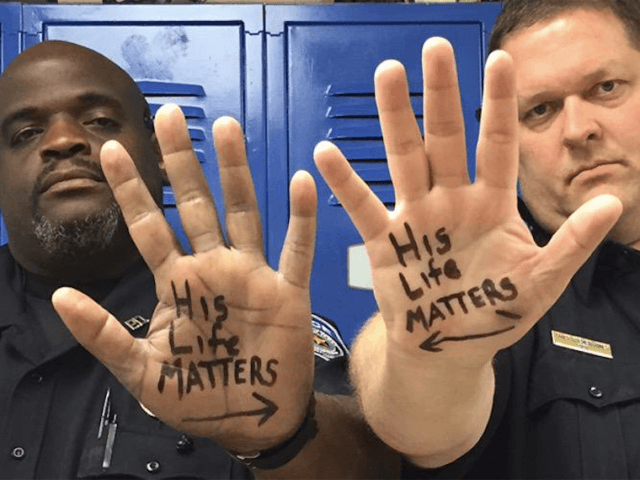My wife related a disturbing story to me about a ride with an Uber driver late last week. The gentleman behind the wheel was black, and a Navy veteran, so he and my wife had at least two things in common.
They discussed current events, and as he drove the late-model luxury sedan to my wife’s office he told her that he shared the anger of young black men in the streets, because the white Republicans, driven by the racist Tea Party, had never given our black president the chance to govern.
What my wife found disturbing is that this man, whose circumstances were so different from some of the people rioting in the streets, and who had lived through the integrating, uplifting experience of service in the armed forces, could believe that his countrymen were racist.
It compounded the frustration she feels when she opens Facebook and sees the chest-beatings of her fellow Harvard alumni, pouring out white guilt or fulminating against The Man. As if they had any real reason to believe it.
I’ve learned to ignore a lot of that, because I’m used to the idea that people often arrive at their deeply held political beliefs for purely psychological reasons.
It is very unlikely that an educated black person, for example, will encounter the virulent racism many believe, or assume, happens all the time. Ta-Nehisi Coates, who writes about the persistence of racism in America, admitted in an interview with Playboy that he personally has never been called the N-word — by a white person — in his life.
But as the late Benedict Anderson explained, national identity is often forged by shared imagination and shared media, and what is being imagined today, in common, can have very real consequences.
The people facing off against police on highways in Atlanta and Oakland may never have had any kind of negative experience with police — indeed, they share an implicit trust that the police will let them protest, even illegally — and yet they are forging a new political identity that can create its own reality.
How did we get here?
Conservative radio host Joe Walsh earned national notoriety by blaming Obama for the police murders. There are other conservatives who feel the same way — and they are largely wrong.
Literally hours before the Dallas murders, Obama gave an unusually — for him — heartfelt speech in defense of law enforcement. That received precious little attention, though, because Obama prefaced those words with unfortunate comments about “a broader set of racial disparities.”
Hillary Clinton followed suit — after the Dallas murders — by blaming “systemic racism” and declaring: “White Americans need to do a better job of listening.” (Only white Americans?) That kind of rhetoric might impress a panel of CNN political commentators, but it is exactly the wrong message. It frames racism as the fundamental problem in American society, and encourages people to interpret events through that lens. It sows seeds of mistrust, when racism had largely been overcome.
In his Sabbath sermon, my rabbi — who works closely with police here in Santa Monica, where the chief is a black woman — lamented the sudden decline of race relations as a throwback to the past. We all went through a common experience, when things improved — why are we being dragged backwards?
And the answer is that our leaders made a deliberate choice to radicalize our politics, unnecessarily. The racism and mistrust followed, because they are necessary to sustain that radicalism.
The Tea Party arose not because of racism, but because President Barack Obama made clear he was going to push through his agenda regardless of the wishes of the opposition or the constraints of the Constitution, and because voters realized that the Republicans, left to their own devices, were not going to stop him.
That’s all. That had nothing whatsoever to do with racism, but Obama and his party found it convenient to invent it — like the lies about the N-word being shouted at black legislators in 2010.
The reason Donald Trump exists as a political phenomenon is that there is a sizable constituency of conservatives who are tired of losing to that. They were tired of losing in 2000, too, but Republicans worried at the time about the moderate middle, and so a “compassionate conservative” like George W. Bush was their response.
The left demonized Bush anyway — partly because the 2000 recount convinced them they could, because he was “illegitimate” — and Obama rode that wave to office.
Trump fights back (though his statement about Dallas was remarkably measured, even presidential). The problem is that there is only so much more fighting the country can take. We abuse social media to fantasize about a dystopian America, and in the process we are bringing it about.
There is only one way to stop this: to find racial harmony where it exists, and to show it to each other, in every medium — to make Dr. Martin Luther King’s vision competitive again in the free marketplace of ideas.

COMMENTS
Please let us know if you're having issues with commenting.